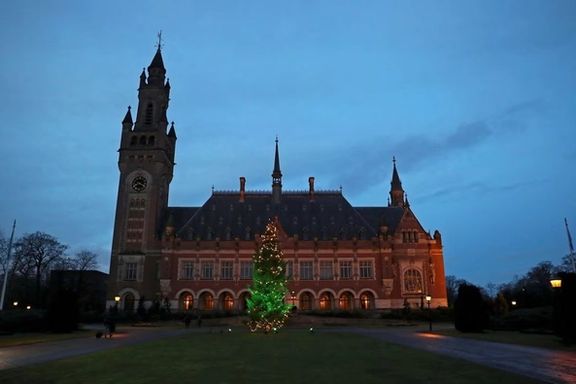World Court Rejects Tehran’s Bid To Free Assets Frozen In US

The International Court of Justice (ICE) on Thursday rejected Tehran’s legal bid to free up $1.75 billion of the Islamic Republic’s assets frozen by US court rulings.

The International Court of Justice (ICE) on Thursday rejected Tehran’s legal bid to free up $1.75 billion of the Islamic Republic’s assets frozen by US court rulings.
In a 10-5 majority decision, judges said the UN International Court of Justice did not have jurisdiction to rule on the Iranian claim linked to the assets of the Central Bank of Iran (CBI) that were blocked to be paid in compensation to victims of a 1983 bombing in Lebanon and other attacks linked to the Islamic Republic. The CBI’s frozen assets of $1.75 billion in bonds, plus accumulated interest, are held in a Citibank account in New York.
The court found that the US move to seize assets of Iran and Iranians in the United States breached a treaty between the countries, signed in 1955, about 24 years before the establishment of the Islamic Republic. However, it ruled that it did not have jurisdiction based on the 1955 Treaty of Amity in the case of CBI’s funds because it is not a commercial enterprise, and thus not protected by the treaty.
The ICE judges accepted American lawyers’ contentions that the frozen central bank assets were state holdings not covered by the treaty, but ruled that assets belonging to non-government, commercial entities should be protected.

Iran argues the asset freeze was a breach of the 1955 Treaty of Amity, which promised friendship and cooperation between the two countries, even though the US and Iran have had no diplomatic relations since militant students took over the US Embassy in Tehran in 1979. Moreover, Washington terminated the Treaty of Amity in 2018 in response to an order by the International Court of Justice in a separate case to lift some sanctions against the Islamic Republic. Nonetheless, the ICE ruled that the treaty was in place at the time of the freezing of the assets of Iranian commercial companies and entities.
In its 67-page judgment on Thursday, the court also ruled that Washington had illegally allowed courts to freeze assets of some Iranian companies and ordered Washington to pay compensation, the amount of which should be negotiated between the countries. If they fail to reach a number, they will have to return to the Hague-based court for a ruling.
"The court has concluded the United States violated its obligations under (...) the treaty of amity," presiding judge Krill Georgian said. He added that Iran was entitled to compensation and the parties had 24 months to agree on a figure and if that did not work, the court would start new proceedings to determine the amount to be paid.
The court’s judgments are final and legally binding but the United Nations' top court has no means of enforcing them.
At hearings in September 2022, the Islamic Republic called the asset freeze an attempt to destabilize the Islamic Republic and a violation of international law. Tehran took its claim to the world court in 2016 after the US Supreme Court ruled that money belonging to Iran’s central bank could be used as compensation for the 241 American troops who died in the 1983 bombing. After the bombing of the US military base in Lebanon, a second blast nearby killed 58 French soldiers. Tehran has denied involvement, but a US District Court judge found Tehran responsible in 2003. The judge’s ruling said Iran’s ambassador to Syria at the time called “a member of the Iranian Revolutionary Guard – IRGC -- and instructed him to instigate the Marine barracks bombing.”
Acting Legal Adviser Rich Vise of the US State Department said in a written statement that the ruling rejected the "vast majority of Iran's case," notably where it concerned the assets of the central bank, adding that "This is a major victory for the United States and victims of Iran’s state-sponsored terrorism."
Iran's foreign ministry also reacted to the Thursday ruling, hailing the decision as "highlighting the legitimacy" of its positions and "expressing the wrongful behavior of the United States".
Tehran’s talks with world powers to revive the 2015 nuclear deal – officially known as the Joint Comprehensive Plan of Action (JCPOA) -- was going on with some vague prospects of success but ultimately collapsed after Russia invaded Ukraine. Russia was an active player in the talks from April 2021 to February 2022, when it invaded Ukraine. The negotiations in Vienna ended in early March. Some Iranian observers suggest that the West is not likely to respond to Iran's renewed calls for nuclear talks unless Tehran stops supplying weapons to Moscow in its war.